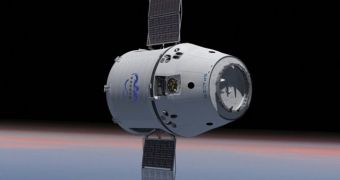Participants at the Tenth Annual Isaac Asimov Memorial Debate agreed in principal that the new plan for space exploration that the Obama Administration set forth is lacking a clear principal. Speaking at the meeting, which was hosted by the American Museum of Natural History (AMNH), in New York, the experts said that they would have liked to see more emphasis being placed on a particular goal, rather than on very vague proposals, such as the ones included in the 2011 planned budget. The director of the Museum's Hayden Planetarium, astronomer Neil deGrasse Tyson, moderated the talks.
One of the best replies in the meeting came from Paul Spudis, who is a geologist at the Houston, Texas-based Lunar and Planetary Institute. He told the public present at the debate that he feels “it's a fundamental mistake to give NASA $20 billion a year and not give them a destination. My feeling is that wherever you go […] you've got to pick something, because if you're not working towards something, you're going to get nothing,” His opinion is in echo with that of many senators and representatives, who see no point in supporting private corporations for developing astronaut-ferrying services given that Project Constellation is to be canceled.
Under the new budget proposal that Obama sent to Congress, plans to develop and build the ARES rockets and the Orion Crew Exploration Vehicle, among other spacecrafts, will be abandoned, in spite of significant progress. In return, NASA will be given $6 billion over the next five years, to support the development of manned and unmanned spacecrafts by private companies, for ferrying astronauts and supplies to the International Space Station (ISS). Many see this as a useless measure, given that the only ones who stand to gain from it being adopted are the private companies. Additionally, while Obama says that doing so would clear the way for NASA to reclaim first place in innovation, all future accomplishments will be for nothing without a goal, analysts say.
Aerospace engineer Robert Zubrin, the founder of the Mars Society, said that giving so much money to NASA was very likely to incite innovation, but in the sense that new, unrelated technologies would be created. The expert added that it made no sense to design new thrusters and rockets, if they could not work together, as part of the same system. “If you just have technology development programs, you get a thruster without a reactor to power it. You have to develop the complete set that fits together to give you mission capability,” Zubrin explained, quoted by Space.

 14 DAY TRIAL //
14 DAY TRIAL //